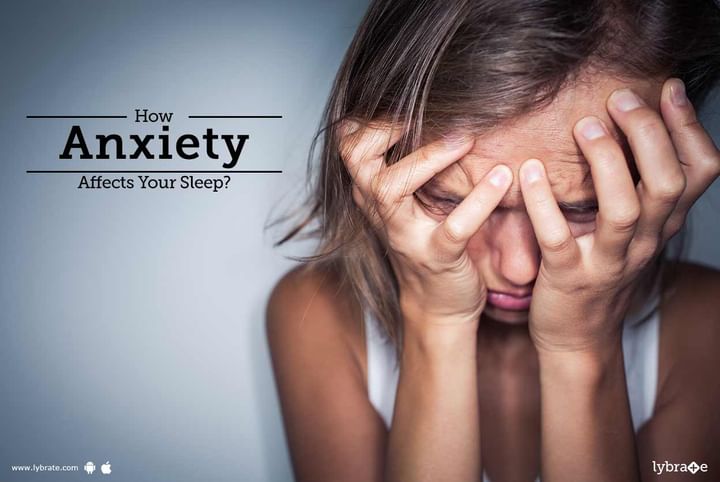How Anxiety Affects Your Sleep?
Anxiety and stress are the biggest roadblocks of sound sleep for many individuals. It is estimated that three out of ten individuals can’t sleep due to anxiety related disorders. The mind starts racing as soon one tries to sleep. The anxiousness results in increased restlessness, thereby, affecting sleep. Most adults face this problem at least once in a week. There are many individuals whose sleep is affected more than once a week due to anxiety.
A study revealed that more approximately 42 % women and 52% men find it difficult to focus on their work the very next day. In a case, anxiety affects your sleep occasionally, these simple methods would help you to do away with sleeplessness:
- Exercise: It is a very old practice and most people already know it. Daily exercise, moderate workout, brisk walking, jogging etc. can keep stress away and helps to improve sleep. Daily exercise can relax your nerves, loosen body muscles, relaxes the brain and helps to keep stress away. People with chronic insomnia have found to be exercising beneficial. In a case of an intense work-out session, it should be ensured that the body is rested at least twice in a week.
- Wind down before sleep: A bedtime routine is important for a sound sleep. Healthy practices such as taking shower, playing quiet music, reading a book etc. can help soothe your nerves and get can hellp you sleep better and quickly. These activities should be done at least half an hour before sleep. Soon it becomes a habit and helps an individual sleep without stress and anxiety.
- Meditate: Quieting the mind is an art. Yoga can greatly you help to achieve this without much hassle. If meditation looks like too taxing, sitting quietly in an isolated place for 5 odd minutes and inhaling and exhaling air will also do the trick. Yoga is a thousand-year-old stress buster mechanism. It has fetched fruitful results for many.
- Do not undertake stressful activities before bed: It becomes obvious not to get into any heated arguments, reading a stressful news, undertaking any stressful activity etc before bed. This will ensure that a person can relax before sleep and the adrenaline levels are at a normal level. It will ensure sound sleep for an individual.
- Create a to-do list: A to-do list takes care of daily works to be done. This can organize the day and help a person establish everything he needed to, throughout the course of the day. This will also help an individual refrain from any stress which in turn will help in sound sleep.
- Don’t lie awake: If it becomes difficult to sleep, it makes sense not to lie awake. Instead few things that are relaxing can be done in the interim. It will soothe the nerve and help to catch sleep sooner than later.
In case you have a concern or query you can always consult an expert & get answers to your questions!



+1.svg)
